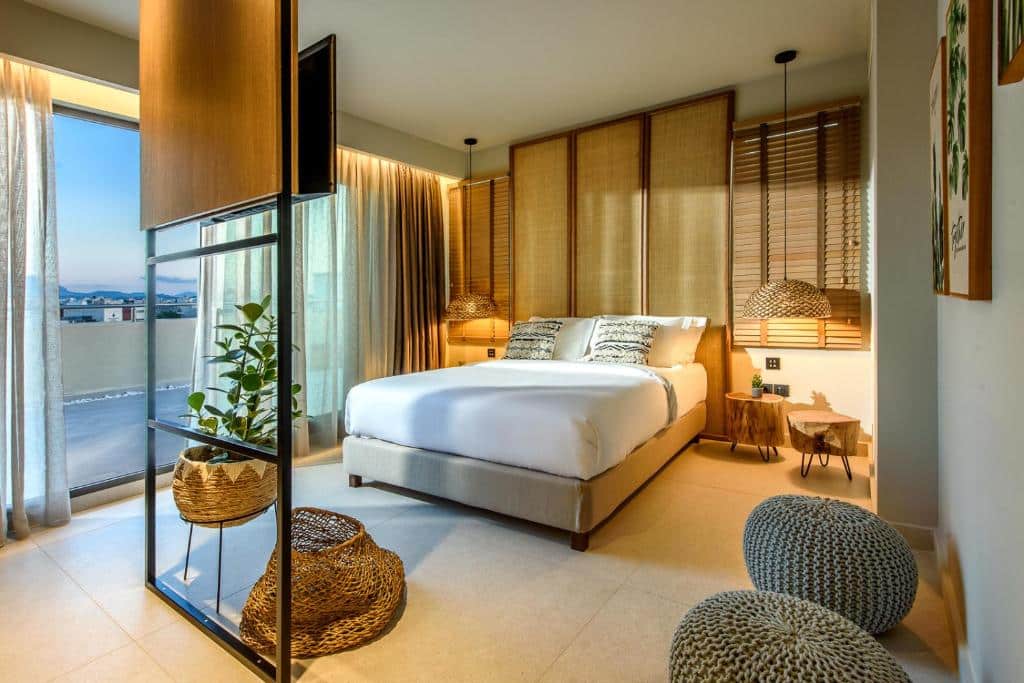How to Prepare a SWOT for a Boutique Hotel

Conducting a SWOT analysis is pivotal in crafting a comprehensive business plan for a boutique hotel. SWOT, which stands for Strengths, Weaknesses, Opportunities, and Threats, serves as a strategic tool for owners to assess internal and external aspects of their establishment.
Integrating a SWOT analysis into a boutique hotel’s business plan unveils its market position and illuminates avenues for growth. For instance, strengths may encompass unique amenities, outstanding customer service, and prime location, while weaknesses could include outdated facilities or limited conference spaces.
This article will explore diverse examples of strengths and weaknesses, equipping boutique hotel proprietors with valuable insights to enhance their business plans.

.
Strengths
Explore the inherent strengths that set boutique hotels apart in the competitive hospitality landscape.
- Unique and Intimate Atmosphere: Boutique hotels provide an intimate ambiance and distinctive design, offering guests a memorable and personalized stay.
- Example: Incorporating local art or architecture into the hotel’s design enhances the uniqueness and appeals to culturally inclined travelers.
- Tailored Guest Experiences: Personalized services and attention to detail create a bespoke experience, fostering guest loyalty and positive reviews.
- Example: Offering personalized welcome amenities or concierge services tailored to individual preferences enhances the overall guest experience.
- Local Authenticity and Character: Boutique hotels often showcase the local culture, embracing authenticity and immersing guests in the destination’s character.
- Example: Collaborating with local artisans or hosting cultural events provides guests with an authentic and enriching experience.
Weaknesses
Identifying weaknesses is crucial for mitigating challenges and ensuring sustainable growth in boutique hotel services.
- Limited Resources for Marketing: Boutique hotels may have limited budgets for marketing, impacting their visibility in a crowded market.
- Example: Leveraging social media platforms or collaborating with local influencers can maximize marketing impact with minimal budget.
- Dependency on Location: The success of a boutique hotel can be heavily influenced by its location, with challenges arising in less strategic areas.
- Example: Enhancing the hotel’s appeal through targeted marketing campaigns or special packages can attract guests to less prominent locations.
- Operational Intensity: The personalized services offered in boutique hotels may require intense operational efforts, leading to potential burnout.
- Example: Implementing efficient staff training programs or outsourcing specific services can alleviate operational pressures and enhance staff well-being.
- Market Sensitivity: Boutique hotels may be more sensitive to economic downturns or fluctuations in the travel and tourism industry.
- Example: Creating flexible pricing plans or offering exclusive packages during economic downturns can maintain competitiveness.
Opportunities
Identifying and capitalizing on opportunities can position boutique hotel services for sustained success in the ever-evolving hospitality landscape.
- Collaborations with Local Businesses: Partnering with local businesses, such as restaurants or event organizers, can enhance the overall guest experience and attract new clientele.
- Example: Offering joint promotions with nearby businesses or hosting collaborative events can create a mutually beneficial relationship.
- Targeting Niche Markets: Identifying and catering to specific niche markets, such as eco-friendly travelers or wellness enthusiasts, can open new revenue streams.
- Example: Introducing eco-friendly initiatives or wellness packages can attract niche markets seeking sustainable and health-conscious accommodation.
- Expanding Digital Presence: Expanding the hotel’s digital presence through online booking platforms and a user-friendly website can broaden its reach.
- Example: Implementing effective SEO strategies or investing in online advertising can increase the hotel’s visibility and attract a wider audience.
- Diversification of Services: Offering additional services, such as event hosting, spa facilities, or curated experiences, can enhance the hotel’s overall appeal.
- Example: Introducing themed packages or collaborating with local spas for exclusive wellness retreats can diversify the hotel’s service offerings.
Threats
Anticipating and mitigating threats is essential for the continued success of boutique hotel services.
- Increased Competition from Chains: The rise of large hotel chains entering the boutique space may pose challenges for smaller boutique establishments.
- Example: Emphasizing unique selling points, such as personalized services or curated experiences, can distinguish the boutique hotel from larger competitors.
- Technological Disruptions: Rapid advancements in hospitality technology may require boutique hotels to adapt and invest in modern systems to remain competitive.
- Example: Integrating smart room technologies or contactless check-in processes can enhance the hotel’s technological appeal.
- Global Health Crises: Events like pandemics can severely impact the travel and hospitality industry, necessitating crisis management and adaptation.
- Example: Implementing robust health and safety measures or offering flexible cancellation policies can address guest concerns during global health crises.
- Changing Travel Trends: Shifts in travel preferences or the emergence of new trends may influence guest expectations and impact boutique hotel demand.
- Example: Staying informed about emerging travel trends and adapting services, such as offering remote work-friendly amenities, can align the hotel with evolving guest preferences.





